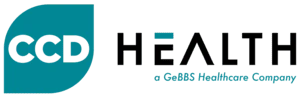How an Integrated Scheduling & Billing Solution Improves Healthcare Ops

Running a healthcare center successfully means balancing patient care with efficient administration, no easy feat when scheduling, intake, and billing happen in silos. Missed appointments, billing delays, and frustrated staff are common. But a truly integrated system, supported by a skilled operations team with experience across specialties, can eliminate these friction points.
Imagine a central scheduling and revenue-cycle platform, backed by specialists managing everything from radiology scheduling to denials, together with digital intake tools and automated billing workflows. It’s not just better processes; it’s a service-powered solution that improves access, speeds revenue, and elevates patient experience.
1. Centralized Scheduling + Expert Support
The first critical step in any patient journey is scheduling, and mistakes here ripple through the rest of the care cycle. Many scheduling teams lack clinical context, specialty nuance, or access to integrated systems. An integrated solution places trained scheduling professionals at the core of the workflow, using intelligent scheduling platforms to route patients correctly, optimize provider capacity, and reduce delays.
Better access, specialty-aware workflows
- Trained schedulers understand nuances like visit durations, provider preferences, and pre-authorization needs for different specialties.
- Integration with EHRs and practice management systems ensures real-time availability, helping eliminate double-bookings or underutilized slots.
Team-driven efficiency
- Staffing consistency across time zones and shifts allows practices to support high call volumes without burnout.
- Using smart waitlist features to backfill cancellations instantly, preserving revenue and reducing access delays.
2. Patient Intake Powered by People + Tech
A specialized team ensures that every piece of patient-submitted data is accurate, complete, and compliant before the visit. A blend of automation and oversight accelerates patient readiness and reduces administrative burden across the board.
Tailored pre-visit experience
- Intake specialists review forms for missing data, help patients complete them, and proactively confirm insurance eligibility.
- Each specialty receives unique intake templates, reducing unnecessary forms and streamlining information collection.
Accuracy and compliance
- Collected data syncs directly to the EHR and billing systems, reducing manual entry.
- Verifying patient demographics and insurance in advance, helps prevent denials and ensure clean claims.
3. Integrated Billing and RCM with Skilled Oversight
Revenue cycle management is often fragmented: clinical data lives in one system, billing in another, and denials are managed retroactively. Embedding experienced billing professionals into the process and connecting systems across scheduling, intake, and claims reduces the likelihood of claim rejections and speeds up reimbursement timelines. This proactive, people-driven RCM approach helps healthcare centers stabilize cash flow and reduce manual work.
Smart claim flow + revenue assurance
- Specialized RCM teams monitor patient eligibility from the moment an appointment is scheduled, ensuring only billable encounters proceed.
- Real-time charge review and coding verification improve first-pass resolution rates and compliance.
Denial management and analytics
- Denials don’t fall through the cracks with a team that identifies root causes and re-trains upstream staff accordingly.
- Regular reporting allows administrators to track payer behavior, underpayment trends, and revenue opportunities.
4. Interoperability Across Systems and Roles
When scheduling, intake, and billing operate in silos, communication breaks down. Information gets lost or duplicated. Connecting key touchpoints with integrated software and cross-trained staff enables seamless handoffs and real-time collaboration, especially important in multi-specialty environments. Integration isn’t just technical, it’s also about operational teamwork.
Seamless workflows
- A team that works within or alongside your existing EHR and billing systems, reducing change fatigue.
- Shared dashboards offer everyone, front desk, intake, RCM, visibility into patient status, eliminating miscommunication.
Care coordination
- From coordinating pre-op imaging to managing behavioral health paperwork, a specialized staff handles it with the right timing and follow-up.
- Complex workflows like prior authorizations or referrals are improved, tracked and fulfilled without burdening your clinical staff.
5. Efficiency Gains, Error Prevention
Healthcare organizations spend too much time correcting preventable mistakes, missed appointments, authorization errors, and billing edits. These not only cost money but also create delays in care. An integrated model proactively prevents these issues by combining staff expertise, intelligent workflows, and clear escalation protocols. The result: fewer fire drills, more predictability.
Time savings = care time
- Administrative tasks are completed faster and more accurately, freeing providers and staff to focus on care.
- Staffing a specialized team through a third-party provider means your center can scale up or down during periods of growth or demand spikes.
Error reduction
- Every intake and scheduling entry is reviewed by staff trained to spot errors like plan mismatches or specialty routing mistakes.
- Mistakes are caught before they become claim denials or compliance issues.
6. Patient Experience and Satisfaction
Operational friction, long holds, duplicate forms, and unclear bills undermine patient trust. Making every step feel coordinated and thoughtful helps your center offer an experience that’s both efficient and compassionate. A smoother journey means higher satisfaction, better reviews, and improved retention.
Convenient, transparent care
- Patients appreciate being able to schedule online, receive clear reminders, and complete intake from home.
- Billing support teams explain charges and assist with payment plans, improving collections and reducing stress.
Consistency and communication
- Follow up before and after visits to ensure patients are informed and prepared.
- This continuity builds loyalty and improves show-up rates for follow-up care.
7. Business Benefits: Growth, Stability, Value
Efficient operations drive business outcomes, fuller schedules, faster payments, and fewer errors. With expert staff managing the front end and back end of patient encounters, healthcare centers become more agile, resilient, and profitable.
Faster revenue turnaround
- Front-end accuracy, enabled by expert schedulers and intake teams, results in fewer downstream billing issues.
- Clean claim submission and intelligent follow-up improve days in A/R and net collections.
Scalability for multi-specialty clinics
- Need to support neurology, primary care, and orthopedics? A specialized team can adapt intake and scheduling flows to match each service line.
- As volume grows, these teams absorb complexity without adding to your internal admin workload.
Competitive differentiation
- Patients choose providers that offer clear communication, easy scheduling, and billing transparency.
- Help your clinic stand out by delivering a reliable, high-touch patient experience, powered by specialists who understand your workflows.
8. Future‑Ready Innovation
Healthcare operations are only getting more complex, with new payer models, patient expectations, and regulatory requirements. An integrated solution combines operational experience with adaptable platforms and AI-driven tools to keep your organization ahead of the curve. It’s not just about today’s efficiency; it’s about building a foundation for long-term success.
Predictive scheduling
- Data analytics are an essential part of healthcare scheduling, enabling accurate forecast demand and helping providers shift resources where needed, whether adding slots in summer or adjusting behavioral health capacity.
- This avoids overstaffing or long wait times, keeping access timely and balanced.
Automation in RCM
- AI tools handle repeatable tasks like eligibility checks and claim scrubbing.
- Experts focus on high-value interventions, denial recovery, payer negotiations, and performance analysis.
Measurable Outcomes
These metrics reflect what healthcare centers can expect when they offload administrative complexity to an specialized partner.
| Metric | Impact |
| No‑show rate | ↓ 20–40 % with proactive follow-up |
| Intake processing time | ↓ 60 % via automation + staff QA |
| Claim denial rate | ↓ 25–35 % through clean front-end data |
| Days in A/R | ↓ 20–30 % with integrated billing support |
| Admin burden | ↓ Significantly without new headcount |
Your operations reflect your patient care; if they’re slow or disjointed, patients feel it. Our healthcare BPO service, combining highly trained schedulers, intake coordinators, and RCM professionals with smart, integrated platforms, gives you a proven, scalable way to improve performance without overexpanding internal headcount. It’s a modern solution that respects the complexity of healthcare and handles it with skill.
Ready to improve patient access, reduce billing delays, and grow without adding administrative overhead? Explore our Healthcare Scheduling and Revenue Cycle Management Services, and see how we deliver real results for providers across the US.



